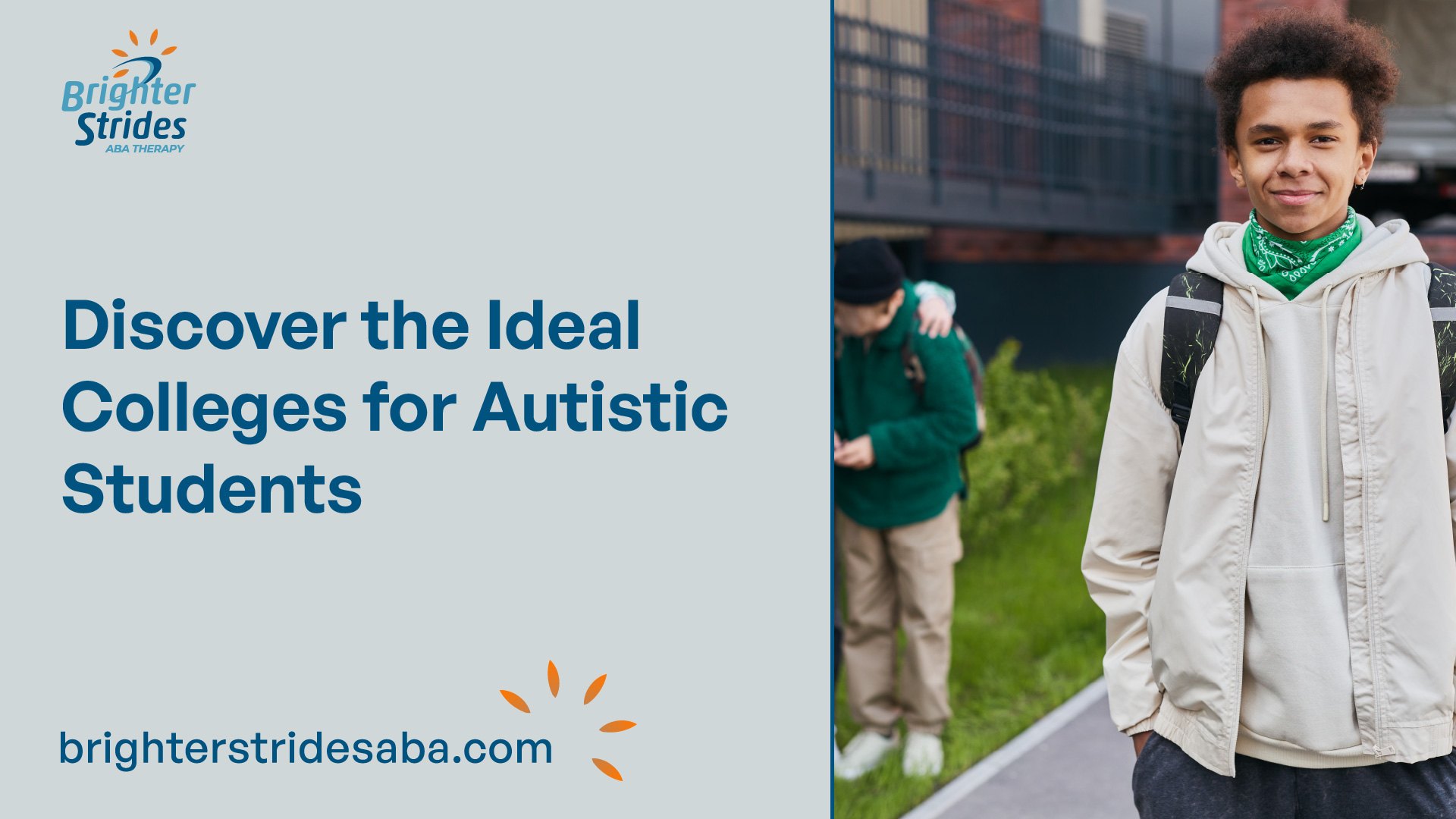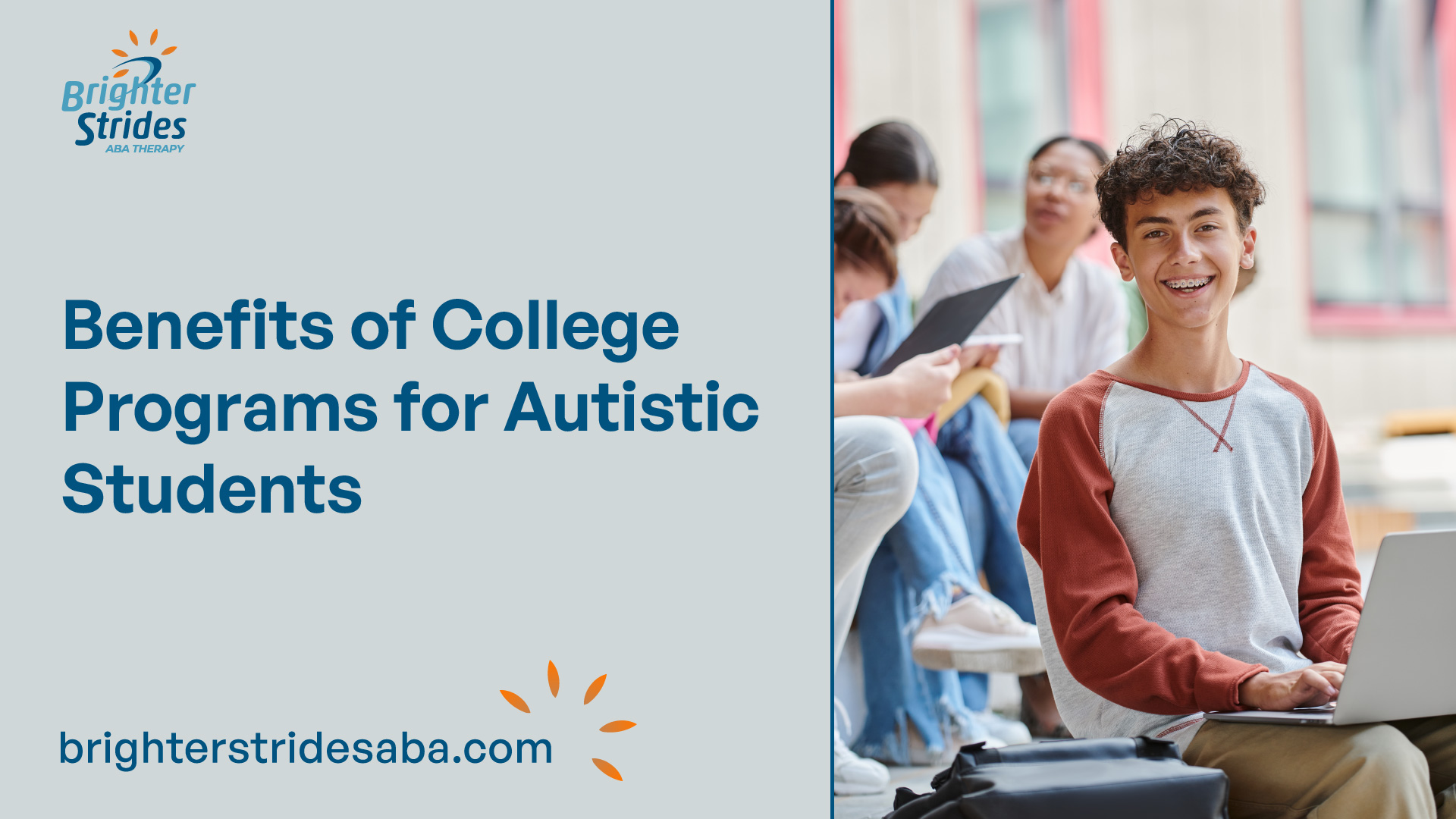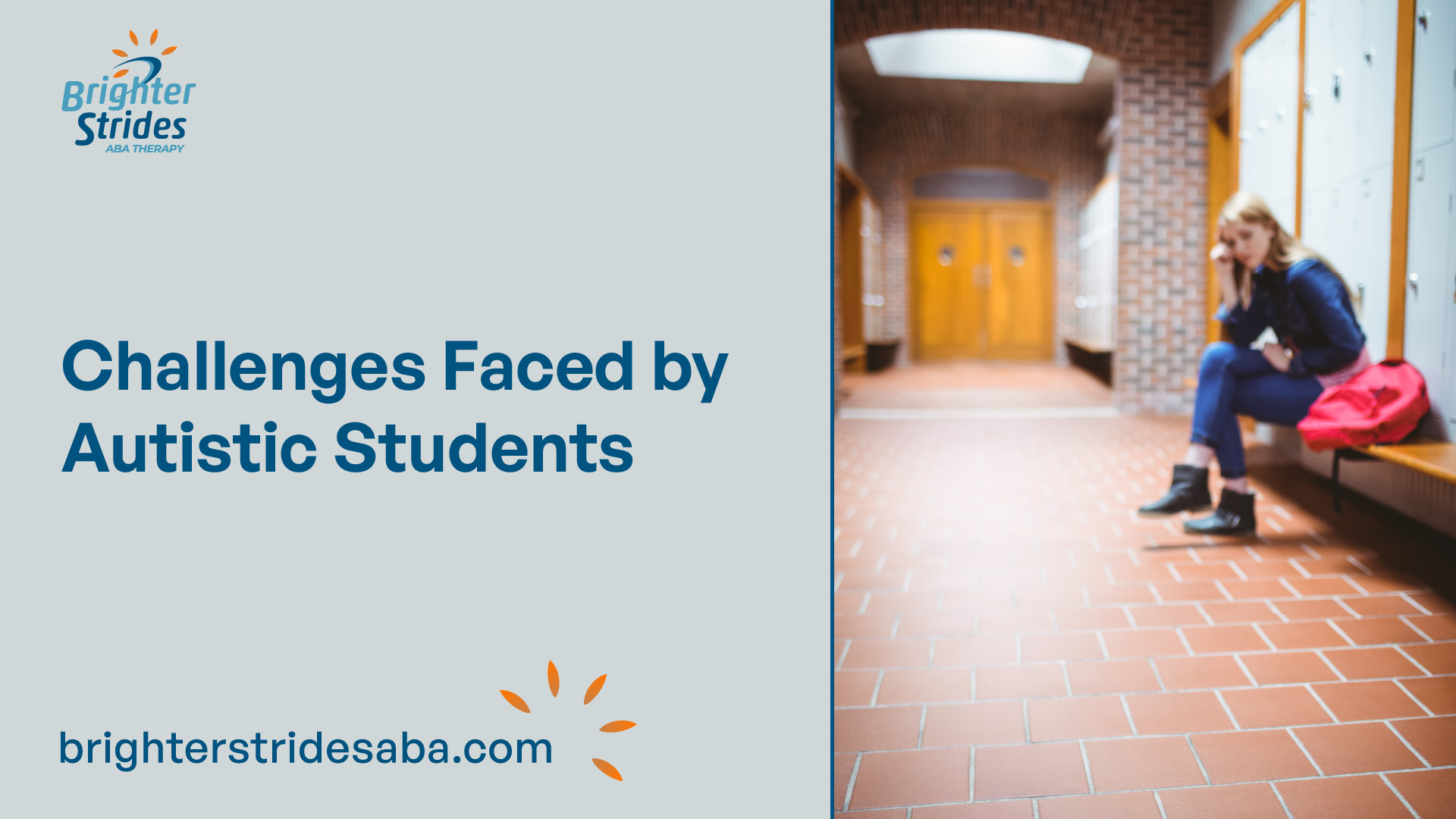
Colleges for Autistic Students
As awareness and understanding of autism continue to grow, colleges are recognizing the importance of providing support and resources for autistic students. Today, there are more than 25 institutions in the U.S. that offer comprehensive support programs specifically designed for autistic students. These programs aim to create an inclusive and supportive environment that fosters academic success and personal growth.
Growing Support Programs for Autistic Students
Over the years, the number of colleges with programs for autistic students has been steadily increasing. Institutions like Arizona State University (ASU) have been pioneers in this field, establishing comprehensive support programs such as ‘SAILS (Students on the Autism Spectrum Linking Independence and Future Success). These programs strive to address the unique needs of autistic students and provide them with the necessary tools and support to thrive in a college setting.
Benefits of College Programs for Autistic Students
College programs for autistic students offer a range of benefits that contribute to their overall success and well-being. These programs go beyond academic support and encompass various aspects of a student’s college experience. Some key benefits include:
- Academic Support: Colleges provide tailored academic support services that help autistic students navigate their coursework, develop effective study strategies, and access resources like tutoring and specialized instruction. This support ensures that students can meet the academic demands of their chosen programs.
- Social and Life Skills Development: Many college programs for autistic students focus on developing social and life skills. Through workshops, counseling, and social groups, students have the opportunity to enhance their communication, self-advocacy, and interpersonal skills. This support helps foster social connections and a sense of belonging within the college community.
- Career Readiness Assistance: College programs often offer career readiness assistance, including internships, job placement support, and guidance in developing professional skills. These resources help prepare autistic students for the transition to the workforce, ensuring they have the necessary skills and knowledge to pursue their career goals.
By offering comprehensive support programs, colleges aim to provide an inclusive and supportive environment where autistic students can thrive both academically and personally. These programs are designed to address the unique challenges and strengths of autistic individuals, empowering them to reach their full potential.
Comprehensive Support Services
Colleges that cater to autistic students understand the importance of providing comprehensive support services. These programs and services are specifically designed to offer not only academic support but also social and life skills development, as well as career readiness assistance. By addressing these different aspects, these colleges aim to create an inclusive and supportive environment for autistic students to thrive.
Academic Support for Autistic Students
Academic support is a key component of comprehensive services for autistic students. These support programs recognize that students with autism may have unique learning styles and may require additional assistance to succeed academically. Colleges provide various forms of academic support, including:
- Academic coaching: One-on-one coaching sessions that help students develop effective study habits, organization skills, and time management techniques.
- Tutoring services: Access to tutors who can provide additional guidance and support in specific subjects.
- Assistive technology: Utilization of technology tools and software that aid in note-taking, reading, and other academic tasks.
- Accommodations: Reasonable accommodations such as extended time on exams, preferential seating, or access to quiet study spaces.
Social and Life Skills Development
In addition to academic support, colleges for autistic students place a strong emphasis on social and life skills development. These programs recognize the importance of helping students navigate social interactions and develop the necessary skills to thrive in various life situations. Some of the support services provided include:
- Social skills groups or workshops: Opportunities for students to practice and improve their social skills, including initiating conversations, interpreting nonverbal cues, and maintaining friendships.
- Counseling services: Access to counselors who can provide guidance and support in dealing with social challenges, anxiety, and other mental health concerns.
- Peer mentoring programs: Pairing autistic students with peers who can provide support, encouragement, and guidance throughout their college journey.
- Independent living skills training: Workshops or programs that focus on developing skills such as budgeting, time management, and self-care.
Career Readiness Assistance
Preparing autistic students for successful careers is another important aspect of support services provided by these colleges. Career readiness assistance includes:
- Internship and job placement programs: Opportunities for students to gain real-world experience through internships and job placements relevant to their fields of interest.
- Resume and interview workshops: Guidance on creating effective resumes, preparing for interviews, and developing important job-seeking skills.
- Networking opportunities: Access to career fairs, networking events, and alumni connections to help students explore different career paths and make connections in their desired industries.
By offering comprehensive support services that address academic, social, life skills, and career readiness needs, colleges for autistic students strive to create an inclusive and supportive environment where these individuals can thrive and achieve their full potential.
Transition Programs for Autistic Students
Transitioning from high school to college can be a challenging period for autistic students. The adjustment to new routines, environments, and social expectations can feel overwhelming. However, there are transition programs available at various colleges that provide valuable support to help autistic students navigate this important phase of their academic journey.
Navigating the College Transition
Preparing for the transition to college is crucial for the success of autistic students. Transition programs aim to equip students with the necessary skills, strategies, and resources to effectively manage the changes they will encounter. These programs focus on areas such as self-advocacy, time management, organization, independent living skills, and social interactions.
By participating in transition programs, autistic students can gain a better understanding of the college environment, establish routines, and develop coping mechanisms to thrive in their new surroundings. These programs often offer guidance and mentorship, helping students build a support network that can assist them throughout their college experience.
Transition Programs at Specific Colleges
Various colleges across the country offer specialized transition programs for autistic students. These programs provide comprehensive support services tailored to the unique needs of autistic individuals. Here are a couple of examples:
- Marshall University: Marshall University offers the College Program for Students with Autism Spectrum Disorder. This program provides individualized support, including academic coaching, social skills training, and career development opportunities. Through this program, students can receive guidance and assistance in navigating the college environment successfully.
- University of Alabama: The University of Alabama in Tuscaloosa offers the Autism Spectrum Disorders College Transition and Support Program (UA-ACTS). This program provides comprehensive academic and behavioral support for autistic students. Services include individualized coaching, social skills training, and assistance with academic accommodations. The program is fee-based, with a cost of $3000 per semester.
It’s important to note that these are just a few examples of the many transition programs available at colleges across the country. Each program may have its own unique offerings and costs. Autistic students and their families should research and explore the specific programs offered by colleges of interest to find the best fit for their needs.
By participating in transition programs, autistic students can enhance their college experience, develop valuable life skills, and increase their chances of academic success. These programs provide the necessary support and guidance to help students smoothly navigate the transition from high school to college and thrive in their new academic environment.

Creating a Supportive Campus Environment
In order to ensure the success and well-being of autistic students in college, it is essential to create a supportive and inclusive campus environment. By fostering an atmosphere that addresses their unique needs, colleges can help autistic students thrive academically, socially, and emotionally.
Inclusive and Accessible Environments
Creating an inclusive and accessible campus environment is vital for the overall experience of autistic students. This involves implementing strategies and initiatives that promote understanding, acceptance, and equal opportunities for all students, regardless of neurodiversity. Some key aspects include:
- Sensory-friendly spaces: Providing designated areas on campus where students can retreat to when they need a break from sensory overload can greatly benefit autistic students. These spaces should be designed to minimize sensory distractions and provide a calm and soothing environment.
- Housing accommodations: Offering housing options that take into consideration the specific needs of autistic students can greatly enhance their college experience. For instance, providing quiet and private living arrangements, allowing for service animals, or offering roommate matching programs that take compatibility and sensory sensitivities into account.
- Accessibility and inclusion initiatives: Ensuring that campus facilities, resources, and activities are accessible to all students is crucial. This includes providing assistive technologies, making physical spaces wheelchair accessible, and offering a range of accessible learning materials and formats. Moreover, promoting disability awareness and inclusion through campus-wide programs and events can help foster a more inclusive atmosphere.
Collaboration and Communication
Collaboration between college administrations, faculty, staff, students, and families plays a pivotal role in supporting autistic students. Open lines of communication and effective collaboration can lead to the implementation of appropriate accommodations and support services. Key elements include:
- Collaboration with families: Involving families in the transition and support process can provide valuable insights and help create a more holistic support network for autistic students. Regular communication with families can help bridge the gap between home and college life, ensuring a seamless transition.
- Faculty and staff training: Providing training and professional development opportunities for faculty and staff can enhance their understanding of autism and equip them with the knowledge and skills needed to support autistic students effectively. Training can encompass strategies for inclusive teaching, communication techniques, and recognizing and addressing the unique challenges faced by autistic students.
- Student support services: Establishing comprehensive support services specifically tailored to the needs of autistic students is paramount. These services may include academic coaching, counseling, social skills groups, sensory accommodations, and assistive technology. By offering these resources, colleges can help autistic students navigate college life successfully.
By prioritizing an inclusive and accessible campus environment and fostering collaboration and communication, colleges can create a supportive atmosphere where autistic students can thrive academically, socially, and personally. Such initiatives contribute to enhancing their college experience and setting them up for success in their educational journey.

Challenges Faced by Autistic Students
College life presents unique challenges for autistic students, requiring additional support systems to ensure their success. Autistic students may encounter difficulties in various areas, including social interactions, sensory sensitivities, executive functioning skills, and academic demands. Understanding and addressing these challenges is crucial for providing the necessary support and accommodations.
Social Interactions and Sensory Sensitivities
Autistic students often experience difficulties in navigating the social aspects of college life. They may struggle with understanding social cues, making friends, and maintaining social relationships. Additionally, sensory sensitivities can pose significant challenges. Bright lights, loud noises, or other sensory stimuli can be overwhelming and affect their ability to focus and engage in the college environment. Creating sensory-friendly spaces and providing accommodations, such as noise-cancelling headphones or quiet study areas, can help create a more inclusive and supportive campus environment.
Executive Functioning Skills
Executive functioning skills, such as organization, time management, and planning, can be challenging for autistic students. Difficulties in these areas can impact their ability to meet academic demands and succeed in college. Autistic students may require additional support and strategies to develop these skills and effectively manage their coursework. Providing resources for organization, time management, and planning can greatly assist these students in navigating college life and achieving academic success.
Academic Demands and Support
Autistic students may require additional academic support to meet the demands of college coursework. Tutoring services, study skills training, and assistive technology can be valuable resources to help them succeed academically. These supports can aid in understanding complex material, managing assignments, and developing effective study strategies. By providing tailored academic assistance, colleges can ensure that autistic students have the necessary tools and resources to thrive in their coursework.
Understanding and addressing the challenges faced by autistic students is vital for creating an inclusive and supportive college environment. By implementing strategies to support social interactions, sensory sensitivities, executive functioning skills, and academic demands, colleges can foster an environment where autistic students can thrive and reach their full potential.
Autism-Friendly Colleges
Autism-friendly colleges prioritize creating an inclusive and supportive environment that addresses the unique needs of students with autism. These colleges offer specialized programs, services, and accommodations to help students overcome challenges and maximize their potential. Let’s explore the characteristics of autism-friendly colleges, the support services they offer, and the campus accommodations and initiatives they provide.
Characteristics of Autism-Friendly Colleges
Autism-friendly colleges possess key characteristics that contribute to their supportive environment for students on the autism spectrum. These characteristics include:
- Comprehensive Support Services: Autism-friendly colleges offer a wide range of support services tailored to the needs of students with autism. These services encompass academic resources, social and emotional support, transition and independence programs, and an inclusive campus environment [4]. By providing a holistic approach to support, these colleges strive to ensure the success and well-being of their autistic students.
Support Services Offered
Support services play a vital role in helping students with autism thrive academically, socially, and emotionally during their college years. Autism-friendly colleges commonly offer the following support services:
- Academic Support Services: These services focus on providing academic resources tailored to the needs of students on the autism spectrum. They may include tutoring, study skills workshops, assistive technology, and individualized academic accommodations to help students excel in their coursework.
- Social and Emotional Support Services: Recognizing the importance of social connections and emotional well-being, autism-friendly colleges offer services to support students in these areas. These services may include counseling, mentoring programs, social skills training, and peer support groups. By fostering a supportive social environment, these colleges aim to enhance students’ overall college experience.
- Transition and Independence Programs: Transitioning to college can be a significant milestone for students with autism. Autism-friendly colleges provide specific programs and resources to help students navigate this transition successfully. These programs may include orientation sessions, life skills development, independent living training, and career readiness assistance. By equipping students with the necessary skills and supports, these colleges empower them to thrive both academically and in their future endeavors.
Campus Accommodations and Initiatives
Creating a supportive campus environment is essential for autism-friendly colleges. They take various steps to ensure that their campuses are inclusive and accessible for students with autism. Some of the accommodations and initiatives offered by these colleges include:
- Inclusive and Accessible Environments: Autism-friendly colleges prioritize creating an inclusive atmosphere where students feel accepted and supported. They promote diversity, foster understanding, and provide resources to educate the campus community about autism. These efforts create a welcoming environment that values neurodiversity and encourages acceptance.
- Collaboration and Communication: These colleges emphasize collaboration between faculty, staff, and students to ensure effective communication and support. Faculty and staff receive training on understanding autism, accommodating individual needs, and implementing strategies to foster success. This collaboration and open communication contribute to a positive and supportive learning environment.
By incorporating these accommodations and initiatives, autism-friendly colleges strive to provide a welcoming and supportive environment for students with autism. These colleges recognize that each student’s unique needs should be addressed to create an inclusive and successful college experience.
Autism-friendly colleges go above and beyond to support students with autism. By offering comprehensive support services, creating inclusive environments, and providing campus accommodations, these colleges aim to help students with autism succeed academically, socially, and emotionally during their college journey.
College Programs for Autistic Students
In recent years, the number of colleges with programs for autistic students has been steadily increasing, with over 25 institutions in the U.S. now offering comprehensive support programs. These programs are designed to promote inclusivity and academic success for students on the autism spectrum. Let’s explore the key aspects of these college programs.
Promoting Inclusivity and Academic Success
College programs for autistic students are dedicated to creating an inclusive environment that fosters academic success. These programs provide a range of support services tailored to meet the unique needs of autistic students. By offering specialized resources and accommodations, these programs aim to remove barriers and facilitate a positive learning experience.
The support services provided focus not only on academic assistance but also on social and life skills development. They aim to enhance the overall well-being and independence of autistic students, enabling them to thrive academically and personally [1].
Range of Services and Accommodations
College programs for autistic students offer a range of services and accommodations to address the specific needs of individuals on the autism spectrum. These services may include academic tutoring, study skills workshops, and specialized counseling services. Additionally, colleges may provide sensory-friendly spaces, assistive technologies, and access to mental health resources.
By providing these resources, colleges aim to create an environment that supports the academic and personal growth of autistic students. The availability of these services ensures that students have the necessary tools and support to succeed in their college journey.
Importance of Tailored Programs
One of the crucial aspects of college programs for autistic students is their tailored approach. These programs recognize that each individual on the autism spectrum has unique strengths, challenges, and learning styles. Therefore, the support and accommodations provided are customized to meet the specific needs of each student.
Tailored programs consider factors such as sensory sensitivities, executive functioning skills, and academic demands. By understanding the individual needs of autistic students, colleges can provide the necessary support and resources to help them navigate the college experience successfully.
By offering programs specifically designed for autistic students, colleges contribute to creating a more inclusive and supportive educational environment. These programs play a vital role in empowering autistic students to achieve their academic goals and reach their full potential.
References
- https://www.myautism.org/informational-kits/college-programs-for-students-with-autism
- https://autisticadvocacy.org/wp-content/uploads/2014/01/NavcollFinal.pdf
- https://sparkforautism.org/discover_article/autism-and-the-college-experience/
- https://www.ambitionsaba.com/resources/colleges-for-autistic-students
- https://autism.org/autism-college/

 We've just released an article!
Check out our blog!
We've just released an article!
Check out our blog!



